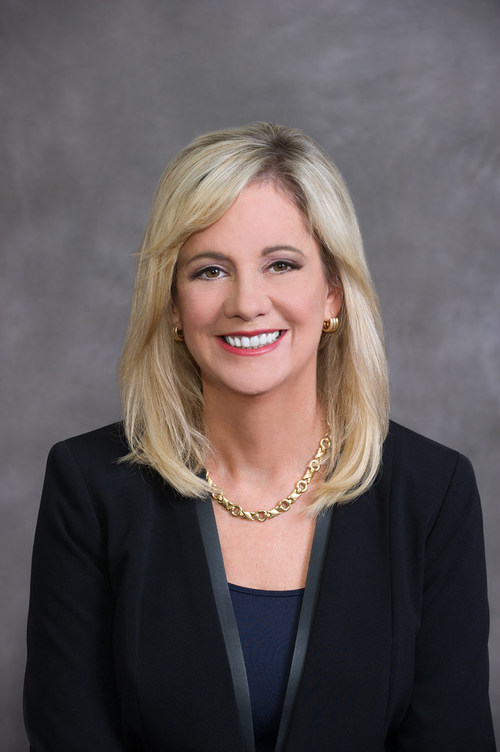KING OF PRUSSIA, Pa., March 30, 2022 /PRNewswire/ — Recovery Centers of America Chief Science Officer Dr. Deni Carise has been appointed by SAMHSA to lead in the creation of the next TIP – Promoting Recovery from Substance Use Disorders.
When the Substance Abuse and Mental Health Services Administration (SAMHSA) asked Dr. Carise to lead a team of experts to create TIP 62, the first Treatment Improvement Protocol to focus specifically on Recovery, titled Counseling Approaches To Promote Recovery From Problematic Substance Use and Related Issues, she welcomed the opportunity.
SAMHSA TIPs draw on the experience and knowledge of clinical, research, and implementation experts to produce best practice guides on a variety of topics including various treatment approaches (Motivational Enhancement, detoxification, group therapy, psychopharmacological), guides for work with specific populations (Native American and Alaska Native, men, women, homeless, families, etc.) and topics such as co-occurring disorder, fetal alcohol syndrome and others. These TIPs are distributed to many facilities and individuals across the country.
Dr. Carise and a panel of 11 will create a robust report for dissemination across the country later this year.
“The whole process is extremely thorough, and we want a lot of voices heard,” Dr. Carise says. “Recovery is an enormous topic. We want the most up-to-date information to be included because the ultimate goal is to educate counselors and providers in any setting about the various paths to recovery, how to support recovery, implement recovery systems of care, and to reduce the stigma of addiction recovery.”
The focus of any TIP is to improve upon existing practices and provide the latest guidance for any setting or level of the substance use disorder process – from Emergency Rooms or Child Protective Services to college campuses and treatment centers for substance use disorders.
Acting Director of SAMHSA’s Center for Substance Abuse Treatment Dr. Yngvild Olsen commented in the first panel meeting, thanking panelists for their compassion and dedication to the topic and their willingness to work on the TIP. She also noted the importance of the multidisciplinary perspectives of the individual members that will contribute to a refined product that elucidates the necessary aspects of counseling when addressing substance use-related issues across multiple settings.
One of the best parts of TIP 62, says Dr. Carise, is that its utility isn’t limited to people who work in substance use disorder treatment facilities.
“If you work in corrections, mental health, schools, really anywhere you see substance use, there is going to be valuable information in this TIP for staff at any level,” she says. “The beauty of it is this TIP could help people not just in traditional substance use recovery settings, but anywhere. And I’m so very happy that we’re focusing on quality of life, not just the disorder or the symptoms.”
Dr. Carise is a clinical psychologist who has been part of the recovery community for more than 35 years. In addition to being Chief Science Officer for Recovery Centers of America, she is an adjunct assistant professor at the University of Pennsylvania Perelman School of Medicine.
Dr. Carise has developed national standards for large systems of clinical care, clinical toolkits for over 30 evidence-based practices, was an NIH-funded scientist for over 18 years, and worked extensively internationally, with treatment providers in Nigeria, Mexico, Thailand, Egypt, Greece, Singapore, Brazil, and numerous other countries to help develop national systems that integrate scientifically validated tools into clinical treatment delivery.
She has dedicated her life to combating substance abuse on every front.
About Recovery Centers of America
Recovery Centers of America (RCA) has ten inpatient substance use disorder treatment facilities in the United States. RCA facilities have been recognized as best U.S. treatment facilities in the past two years by Newsweek Magazine. RCA’s mission is to help 1 million patients achieve a life of recovery through evidence-based alcohol and drug addiction treatment. RCA also has outpatient programs nearby all inpatient programs in Pennsylvania, Maryland, Massachusetts, New Jersey, Illinois, and Indiana, and opioid treatment programs in New Jersey and Pennsylvania, as well as telehealth treatment services. Patients can obtain immediate substance use disorder care by calling 1-800-Recovery with complimentary transportation provided in most cases.
REPORTERS: Interviews available by contacting Joe Carmean @[email protected]
Some text taken from: https://www.samhsa.gov/kap/resources
SOURCE Recovery Centers of America



